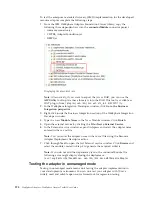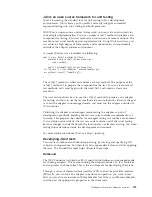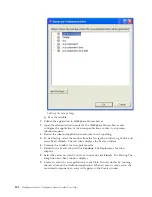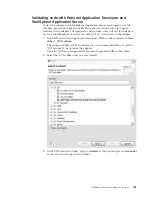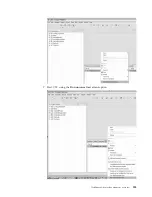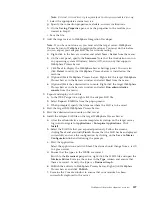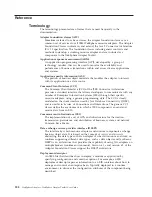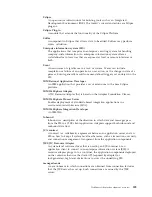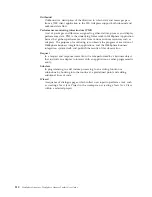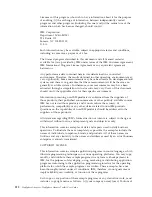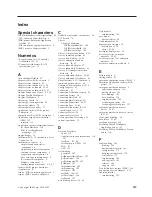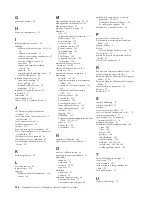
Reference
Terminology
The terminology presented are of terms that are used frequently in the
documentation.
Adapter foundation classes (AFC)
Sometimes referred to as base classes, the adapter foundation classes are a
common set of services for all IBM WebSphere resource adapters. The Adapter
Foundation Classes conform to, and extend, the Java 2 Connector Architecture
JCA 1.5 specification. The foundation classes include generic contracts and
methods to develop a working resource adapter and are included as a
component to the WebSphere Adapter Toolkit.
Application response measurement (ARM)
An application programming interface (API), developed by a group of
technology vendors, that can be used to monitor the availability and
performance of business transactions within and across diverse applications
and systems.
Application-specific information (ASI)
The portion of business object metadata that enables the adapter to interact
with its application or a data source.
Common Client Interface (CCI)
The Common Client Interface (CCI) of the J2EE Connector Architecture
provides a standard interface that allows developers to communicate with any
number of Enterprise Information Systems (EISs) through their specific
resource adapters, using a generic programming style. The CCI is closely
modeled on the client interface used by Java Database Connectivity (JDBC),
and is similar in its idea of Connections and Interactions. The generic CCI
classes define the environment in which a J2EE component can send and
receive data from an EIS.
Common event infrastructure (CEI)
The implementation of a set of APIs and infrastructure for the creation,
transmission, persistence, and distribution of business, system, and network
Common Base Events.
Data exchange service provider interface (DESPI)
The interface by which resource adapters and runtime components exchange
business object data. It is based on the concept of
cursors
and
accessors
,
abstracting the data type so that an adapter can be written once and work on
runtimes supporting different data types, such as data objects and JavaBeans.
DESPI is an architecture that provides the capability of using JCA adapters on
multiple brokers (runtime environments). Version 6.1.x and version 6.2 of the
Adapter Foundation Classes support the DESPI architecture.
Deployment descriptor
An XML file that describes how to deploy a module or application by
specifying configuration and container options. For example, an EJB
deployment descriptor passes information to an EJB container about how to
manage and control an enterprise bean. Typically deployed in a runtime
environment to discover the configuration attributes of the component being
described.
208
WebSphere Adapters: WebSphere Adapter Toolkit User Guide
Summary of Contents for WebSphere Adapters
Page 2: ......
Page 6: ...iv WebSphere Adapters WebSphere Adapter Toolkit User Guide...
Page 220: ...214 WebSphere Adapters WebSphere Adapter Toolkit User Guide...
Page 224: ...218 WebSphere Adapters WebSphere Adapter Toolkit User Guide...
Page 225: ......
Page 226: ...Printed in USA...

